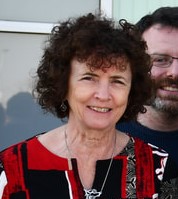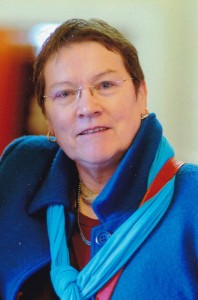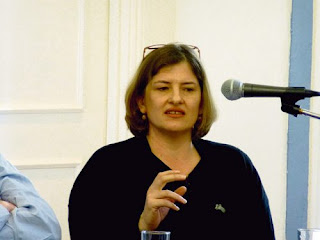Women's history and the Irish Revolution - Part 3

The historian Dr Cliona Murphy of California State University, Bakersfield. Photo taken from CSUB website. Continued from previous post . The chronology of the revolutionary period in Ireland viewed through the lens of women’s history does not necessarily look the same as that of traditional or mainstream history of the period. For example, Senia Pašeta describes the period from 1900 to 1918, not usually thought of as a distinct historiographical phase, as “a discreet [sic] period…in which women built the foundations for the liberation of their sex and their country”. [1] It is also the case that some of what Cliona Murphy calls “the traditional landmarks in nationalist history” [2] take on new significance when viewed from the standpoint of women’s history. The proclamation of the Irish Republic by the leaders of the Easter Rising in 1916, for example, while traditionally considered important for its role in the development of a nationalist consciousness in Ireland at th

